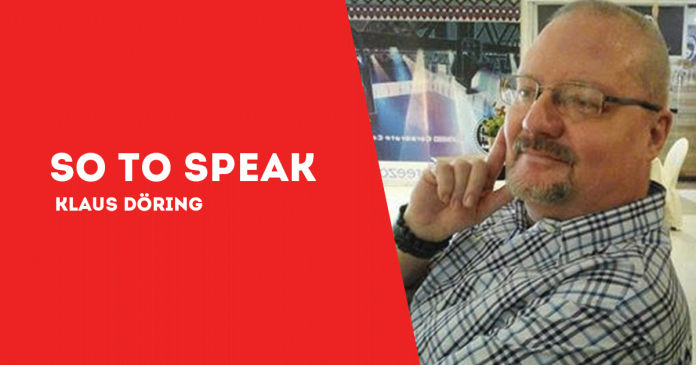
BY KLAUS DÖRING
GREAT leaders are great listeners, and therefore my message today is a simple one – talk less and listen more.
The best leaders are proactive, strategic, and intuitive listeners. They recognize knowledge and wisdom are not gained by talking, but by listening. Take a moment and reflect back on any great leader who comes to mind…you’ll find they are very adept at reading between the lines. They have the uncanny ability to understand what is not said, witnessed, or heard.
In today’s post, I’ll quickly examine the merits of developing your listening skills. Warning: this post isn’t going to coddle you and leave you feeling warm and fuzzy – it is rather blunt and to the point.
Want to become a better leader? Stop talking and start listening. Being a leader should not be viewed as a license to increase the volume of rhetoric. Rather astute leaders know there is far more to be gained by surrendering the floor than by dominating it.
In this age of instant communication, everyone seems to be in such a rush to communicate what’s on their mind, they fail to realize the value of everything that can be gleaned from the minds of others. Show me a leader who doesn’t recognize the value of listening to others and I’ll show you a train-wreck in the making.
Do you sometimes feel like this, my dear readers, that you want to discuss something, but the people opposite to you simply cannot listen to you? Sometimes, I would love to tell them, “first, learn to listen”!
Listening is indeed the key in effective communication. A person does not have to speak all the time to be the smartest person in the room. Lack of listening may result in frustration, disappointment, and resentment in our relationships. When we listen, we are able to create stronger emotional connections with people.
Many times during my teaching, I’m happy when my students have one or more questions for me – so, I can listen to them first. Active listening promotes mindful thinking, which can reduce anxiety and depression in students. It can also help students build relationships because as they engage themselves in conversation, their peers are more likely to view them as open and interested.
However, every time you use active listening, it gets a little easier. It can help you to navigate through difficult conversations. More than that, it helps improve overall communication, builds a better understanding and ultimately leads to better relationships with family, friends and co-workers too.
Listening is an active process by which we make sense of, assess, and respond to what we hear. The listening process involves five stages: receiving, understanding, evaluating, remembering, and responding. Not only in school or at the workplace. But especially talking about the workplace: Listening helps managers to solicit feedback and proactively find out about problems before they escalate. It’s also the only way for management to get to know people as individuals and ensure that they feel genuinely valued.
Listening and the supreme gift of wisdom belong together. You can only become a wise person, if you know how to listen. Do you still remember the university lectures in your old student days once upon a time? Anybody can become wise, Proverbs says. Wisdom is not reserved for a brainy elite. Becoming wise requires self-discipline to study and humbly seek wisdom at every opportunity. And allow me to repeat: and, first, learn to listen.
***
Email: doringklaus@gmail.com or follow me on Facebook, X – Twitter or Linkedin or visit my www.germanexpatinthephiilippines.blogpot.com or www.klausdoriingsclassicalmusic.blogspot.com./PN







